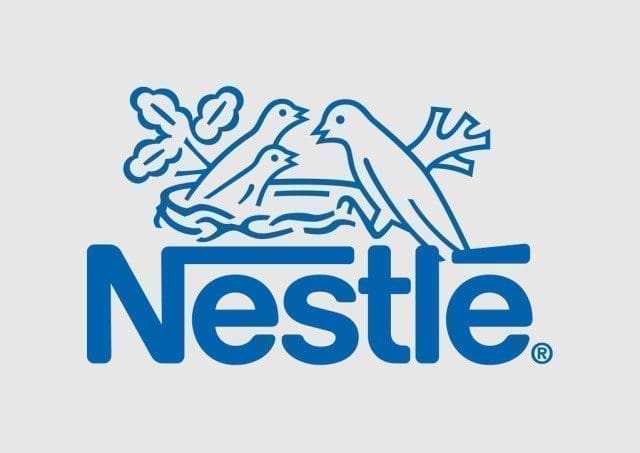Factory tour program aims to bridge value chain understanding while addressing Ghana’s $983-$2,628 annual farmer income crisis
Fifteen cocoa farmers from Adansi Fumesekitua experienced their first glimpse into Nestlé’s Tema factory operations this week, witnessing their raw cocoa beans transformed into globally recognized products like Milo, as the Swiss multinational accelerates efforts to address persistent poverty among Ghana’s cocoa farming communities.
The initiative represents a tangible component of Nestlé’s ambitious CHF 1.3 billion investment by 2030, more than tripling current annual spending on cocoa sustainability programs, even as Ghana’s cocoa farmers continue earning approximately $0.40-$0.45 daily from cocoa, translating to annual net incomes between $983-$2,628 that barely meets subsistence levels.
Anthony Owusu, a farmer who participated in the factory tour, described the experience as transformative, stating that witnessing the cocoa-to-product journey gave him renewed understanding of his role in the global value chain. His colleague Thomas Oduro echoed similar sentiments, expressing surprise at the sophisticated manufacturing processes that convert their farm produce into internationally distributed consumer goods.
The factory visits form part of Nestlé Ghana’s broader “shared value” philosophy, which Corporate Communications Manager Deborah Kwablah explains goes beyond traditional raw material sourcing to encompass comprehensive community development. “We create value for the farmer by training them and helping them to do the right agronomic practices, so that they can get more from the land, and then we can get the cocoa we need,” she emphasized.
This approach addresses critical challenges facing Ghana’s cocoa sector, where farmers struggle with limited access to affordable credit for farm inputs, tools, and expansion, while dealing with low yields from small-sized farms that contribute to issues like child labour and deforestation. Despite being the world’s second-largest cocoa producer, Ghana’s farming communities remain trapped in cycles of economic vulnerability.
Nestlé’s infrastructure investments demonstrate the scale of intervention required to address systemic challenges. The company commissioned 15 boreholes and five new schools in 2025 alone, expanding access to safe drinking water and education in cocoa-growing regions. These investments complement agronomic training programs designed to increase yields and improve farming practices across participating communities.
The timing of these initiatives coincides with Nestlé’s goal to achieve 100% cocoa sourcing through its Nestlé Cocoa Plan by 2025, representing comprehensive coverage of the company’s global cocoa supply chain. The program aims to ensure all cocoa suppliers comply with Nestlé’s Responsible Sourcing Core Requirements while building sustainable livelihoods for farming families.
However, the company’s sustainability efforts operate within broader sector challenges that extend beyond individual corporate interventions. Recent reports indicate that many farmers still earn below living wages, deforestation continues at alarming rates, pesticide misuse remains rampant, and hazardous child labor practices persist across Ghana’s cocoa regions.
The factory tour initiative, which Nestlé plans to make an annual feature, serves multiple strategic purposes. Beyond creating farmer ownership and pride in the value chain, it positions participating farmers as community leaders who can disseminate improved agronomic practices to thousands of other producers in their regions.
Ms. Kwablah emphasized that these farmers function as multipliers within their communities, training others in proper farming techniques and serving as conduits for broader agricultural transformation. The approach recognizes that sustainable change requires grassroots leadership and peer-to-peer knowledge transfer rather than top-down corporate directives.
The success of Nestlé’s shared value model will ultimately depend on measurable improvements in farmer incomes and living conditions. The company’s income accelerator programme has shown progress in strengthening value chains and improving farmer livelihoods, though systematic poverty reduction across Ghana’s cocoa belt requires sustained investment and coordination among multiple stakeholders.
As global chocolate demand continues growing, the sustainability of cocoa supply chains increasingly depends on ensuring farming communities receive fair compensation for their role in the value chain. Nestlé’s comprehensive approach—combining infrastructure development, agronomic training, and value chain education—represents one model for addressing these challenges, though the ultimate test lies in whether such initiatives can deliver lasting economic transformation for Ghana’s cocoa farming families.
The company’s commitment to making factory tours an annual tradition signals recognition that farmer engagement and education must be ongoing rather than one-time interventions, reflecting broader industry understanding that cocoa sustainability requires long-term partnership rather than short-term charity.
Source: newsghana.com.gh











